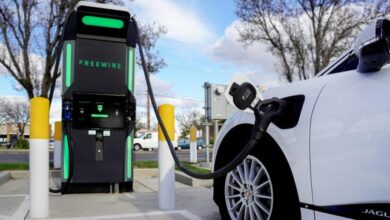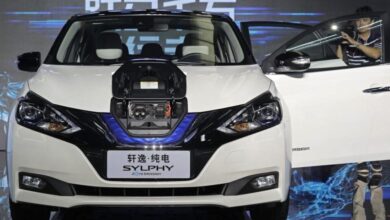One simple change gets rid of electric car ‘range anxiety’, scientists reveal

A simple change could get rid of the intense “range anxiety” that some owners feel about electric cars, researchers have said.
The fear that an electric vehicle might not successfully make a journey, or that it will require waiting a long time for the car to charge up, are two of the biggest things holding back electric vehicles. Many potential purchases of such vehicles say that petrol cars are preferable because they can be immediately topped up at readily available petrol stations.
But new research suggests that a simple tweak might make that much easier. Such issues could be fixed with just a change of mindset, new research suggests, and range anxiety might simply be a result of thinking about it the wrong way.
Much of the problem with range anxiety comes about because drivers of electric vehicles get stuck in their old mindset: constantly looking at how much range they might have left, and spending time thinking about where they might be able to charge up.
Instead, drivers might find it much better to switch to a new way of thinking, which researchers refer to as the “event-triggered model”. Rather than filling up when the gauge shows the petrol is running low, it means automatically plugging in whenever the driver arrives at home or work, for instance.
In that sense, it is less like the traditional model of a petrol car and perhaps more like the routine that someone might have with their mobile phone.
“Experienced electric vehicle users have chosen an event or location to trigger their plug-in; for example, they will automatically plug in when they come home or get to work, so it becomes part of their morning or evening routine, which makes it less of a chore to think about charging,” said Frances Sprei, of Chalmers University of Technology, who helped lead the study.
“There is a lot of emphasis on the time it takes to charge an EV, but if you do it overnight, it is just the time it takes to plug it in. So really, it is just the long trips that you need to plan for.”
The researchers note that this change of mindset would still require changes in infrastructure. Helping people with it will mean focusing on putting chargers in places where people live and work, for instance – rather than putting them at the roadside, alongside petrol stations.
“In order for people to be able to use EVs in the best possible way, policies need to adapt to ensure that people have access to charging infrastructure close to their home or workplace where possible” Professor Sprei said.
She also warned that the focus on increasing batteries might grow out of a similar mindset, and a focus on really long journeys. That in turn could lead to increased prices of vehicles and more resources used to make them, she said, as well as people buying the wrong cars for their needs.
The study, ‘Mental models guide electric vehicle charging’, was published earlier this month in the journal Energy. It was written using in-depth interviews with both experienced and novice electric vehicles users.



